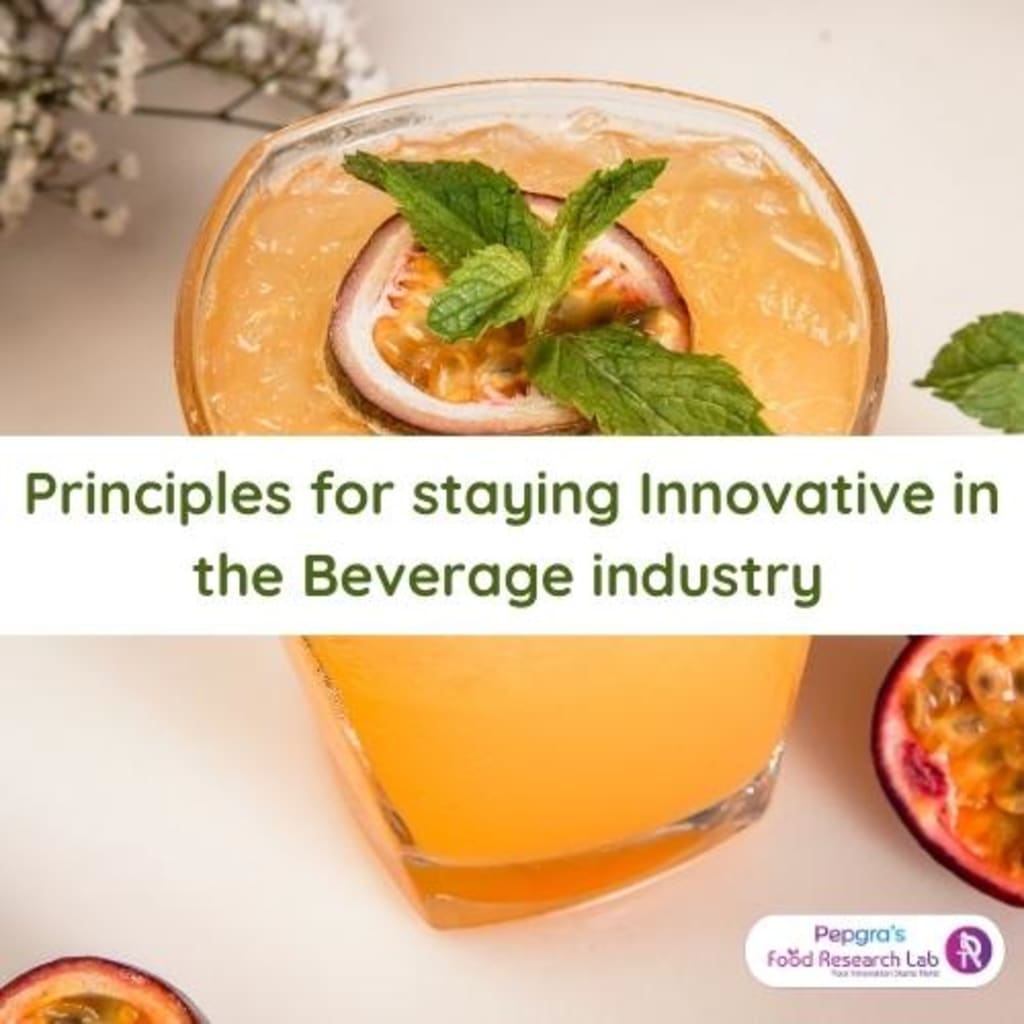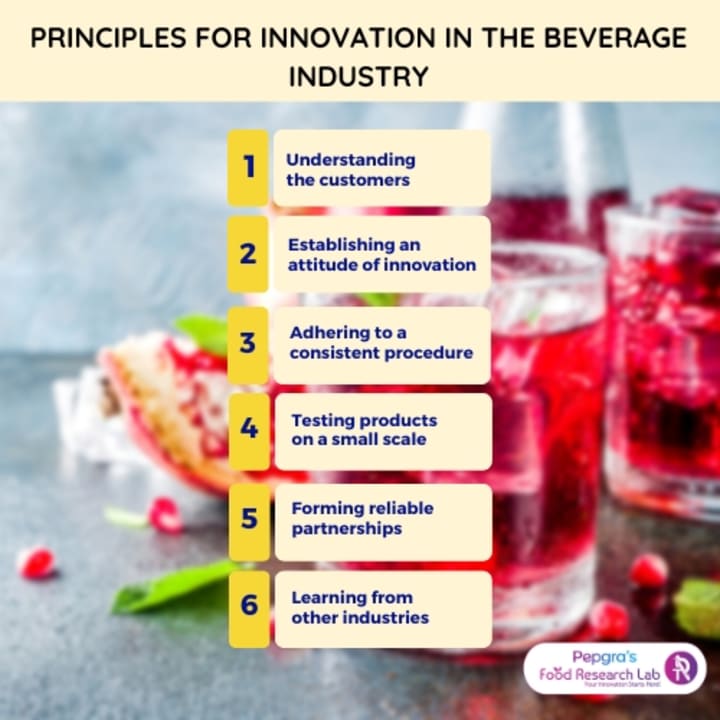Principles For Staying Innovative In The Beverage Industry
Innovation In The Beverage Industry

Introduction
Beverages or drinks have been consumed since ancient times, in the form of tea, beer or wine, but the development of the beverage industry per se is only a few centuries old. What began as a small-scale industry to cater to the locals' needs has developed into corporate giants, manufacturing and selling products worldwide.
This occurred since the dawn of the twentieth century due to mass production and development of machinery, processing and packaging that enabled efficiency in beverage production and an increase in the final product's shelf life. This has occurred due to the generation of ideas, which were later put into practice, leading to an increase in the quantity of products produced and prolonged storage time. This process is called innovation.
Innovation is crucial in the beverage industries for their development and progress. The beverage industry is doing well despite the setbacks that include:
- Ever changing requirements of the consumers
- Tight neck competition with other companies
- Alterations in governing bodies' policies and regulations
- Variations in the availability and costs of raw materials
Principles For Innovation In The Beverage Industry

The following are some principles for innovation in the beverage industry:
1. Understanding The Customers
Consumers are constantly evolving due to a change in their lifestyles and attitudes. Therefore, it is essential for the beverage industry to gather insights about their customers with the help of feedback, research and interviews. The main objective of the beverage industry is to develop drinks that cater to the consumers' needs, which is the foundation of innovation.
2. Establishing An Attitude Of Innovation
One of the main hindrances of innovation is the belief that we know everything and staying in our comfort zone. An innovative attitude entails a willingness to learn, think out of the box and learn from shortcomings. Innovative individuals are daring enough to present their plans, receive criticisms and decide something new. An innovative attitude is open to new ideas, thereby embracing creativity.
Some of the methods that develop an innovative attitude include brainstorming and questioning our presumptions. Innovation and creativity are not inherent; they are constantly evolving with practice.
3. Adhering To A Consistent Procedure
A well-defined procedure enables the innovators of a product to bring their concepts into reality.
- Allotment of roles and responsibilities to different employees increases the effectiveness of the process of developing a new product/modifying a new product.
- Documentation enables transparency of the process.
- Chances of failures are reduced when decisions are made at specific points during the process of innovation.
4. Testing Products On A Small Scale
Conceptualized ideas need to be assigned a prototype, followed by mockups, making necessary amends and starting over again. Successful companies use systems to efficiently launch a minimal viable product (MVP) while gaining the insights to bring such products to market. This ensures that the product innovation is on the right track, allowing us to make any corrections, if necessary, thereby preventing additional costs if the product was designed in bulk in the first place.
5. Forming Reliable Partnerships
One of the ideal methods for the growth of the beverage industry innovation is collaboration, wherein the knowledge of others could fill in the gaps in our understanding. This enables the movement of ideas faster, improves creativity and adds strength.
6. Learning From Other Industries
The most innovative companies focus not only on their competition but also on other industries that succeed in innovation, as to what they are doing differently and whether it is applicable to their own industry. This allows the company to be more innovative and creative.
Food Research Lab has years of expertise in developing beverages that meet our client's requirements. For example, we create various drinks that encompass plant-based, nutritional, and low-calorie drinks. We also have facilities like biochemistry, pilot test, and microbiology labs to ensure that the drink is nutritious and palatable.
About the Creator
Sara Edwin
I'm a food and beverage industry consulting expert and help food manufacturers comply with international food safety, quality & regulatory compliance.





Comments
There are no comments for this story
Be the first to respond and start the conversation.